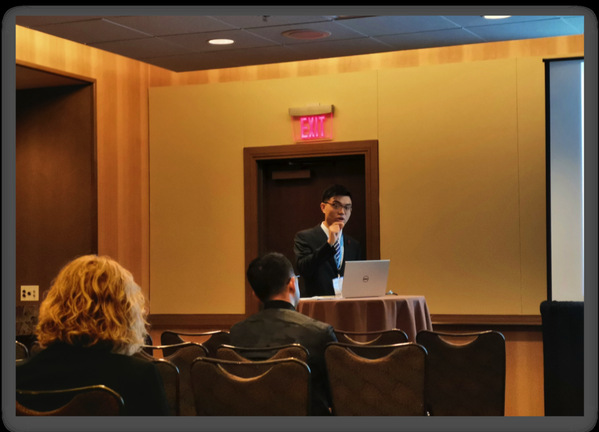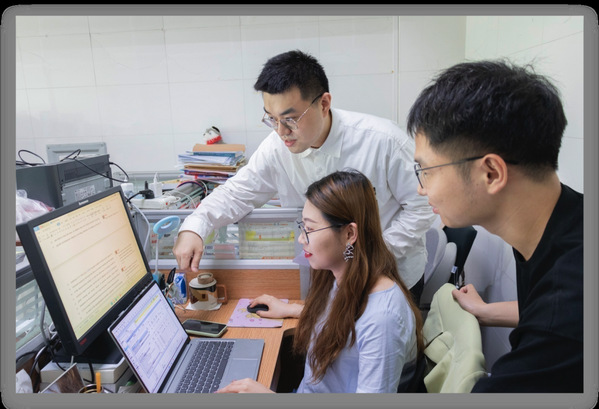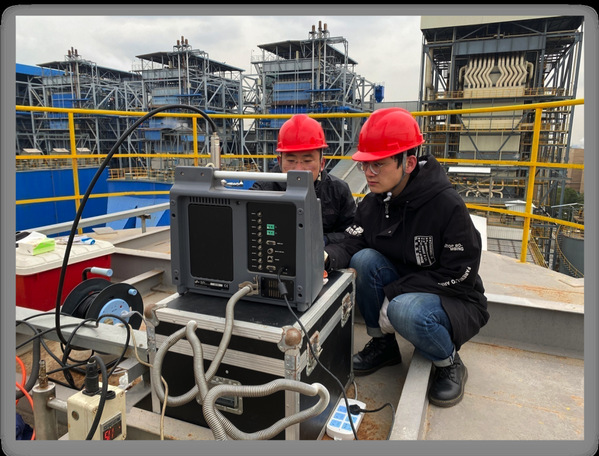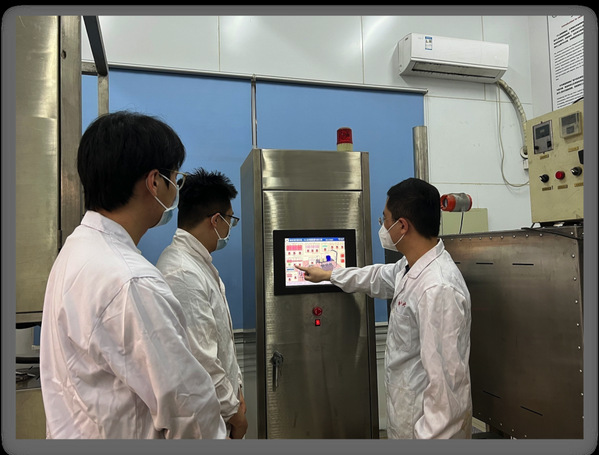Fight for the blue sky
[Editor’s Note: In Qiushi Yard, a group of ZJUers dedicate themselves to environmental protection and strive to realize ‘dual carbon goals’ with their research. Many of them are young people born in the 1990s. Let’s meet two young students who are committed to “defending the blue sky.”]
A high-efficiency, low-consumption “capturer” of carbon dioxide
“At present, the greenhouse effect and global warming are in urgent need of being solved. I am keenly aware of this urgency, so I want to contribute all I can to crack this hard nut,” said LIU Fan, a Ph.D. candidate at the College of Chemical and Biological Engineering. “I find it a very meaningful thing to make my contributions to the realization of ‘dual carbon goals.”

LIU Fan gave an oral presentation at the 2019 Annual Meeting of the American Institute of Chemical Engineers (AIChE)
Liu has been engaged in research into developing carbon dioxide capture technology. In the laboratory, there are dozens of bubble absorption tubes, which are the experimental products of functional ionic liquids as absorbent for carbon dioxide capture. “The R&D of absorbents is crucial to the development and promotion of carbon dioxide capture technology. Although absorbents are highly efficient, they consume a lot of energy. Therefore, there is still a long way to go before it can be applied in industry,” said Liu.

Liu discussed with his team members
Traditional absorbents cannot integrate such characteristics as efficient capture, low viscosity, low energy consumption, and good reusability. In order to smash this bottleneck, Liu and his team members worked very hard day in and day out. They even “camped” in the laboratory for several months. Finally, their efforts paid off. They successfully developed a high-efficiency and low-consumption CO2 composite absorption system based on functional ionic liquids and organic solvents. This study was published in the journal Environmental Science & Technology.
“Prof. LI Wei is my supervisor. At every routine meeting, he stresses the importance of doing research for practical applications in industry,” said Liu. Currently, Prof. LI Wei’s group is working together with several other teams at Zhejiang University. They are making unremitting efforts to industrialize truly efficient and low-consumption CO2 capture absorbents.
A practitioner in managing “flue gas pollutants”
“I chose to do my research into flue gas pollutant management as a doctoral student. This work seems to be far removed from people’s life, but they are indeed intimately bound up with each other. I want to delve deep into this field. Under the guidance of Prof. GAO Xiang and Prof. ZHENG Chenghang, I will make my contributions to defending the blue sky and to building ‘green China’ and ‘beautiful China,” said WANG Yifan.

WANG Yifan carried out the on-site test with his team member
He holds a firm belief that only through personal experiences and field surveys can one do scientific research on the motherland. During his doctoral studies, Wang participated in many engineering field tests and experiments. “Although field work was really tough, I felt that this was the very place where problems could be solved. On the site, we would make concerted efforts. Our first priority would be to solve problems even when we were exhausted. We would adjust instruments over and again for accurate measurement. When the concentrations of particulate matter and SO3 emissions were less than 1mg/m3, we couldn’t help but grin even though our faces were covered with dust. We were flushed with pleasure at that moment,” said Wang.

WANG Yifan conducted the electrostatic removal test of pollutants with his team members
“An individual can go fast, but a group can go far. Only when a whole team is united as one, giving each other support and help, can success be achieved,” Wang said. “I feel happy to work with a cohort of perseverant and resilient teachers and students.”
“We should follow the train of China’s development and solve problems for the country. Our research should not be confined to theory like a castle in Spain. Rather, it should be geared towards major national needs. We should solve real problems, hone practical skills, and develop eco-friendly and low-carbon technologies suitable for China’s national conditions.” Influenced and encouraged by Prof. GAO Xiang and Prof. ZHENG Chenghang, Wang made up his mind to engage in further research into the efficient and synergistic technologies of monitoring flue gas pollutants and carbon dioxide in his postdoctoral work.
ZJUers will forge ahead on the road of battling pollution and reducing carbon dioxide.
Photo credit: the interviewees